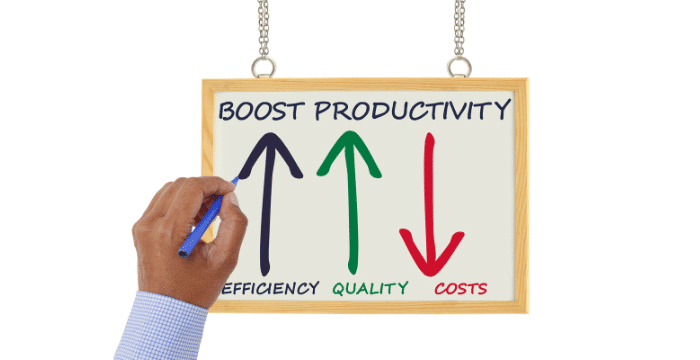As a sales expert, I’ve learned that mastering the psychology of sales is the key to achieving success in the field. Understanding consumer behavior and knowing how to tap into it can make all the difference in closing deals and building long-lasting relationships with customers. In this comprehensive guide, I will share with you some invaluable insights and tips that I have gained throughout my career.
What Is Consumer Behavior in Sales Psychology?
Consumer behavior refers to the study of how individuals make decisions regarding their purchases. It encompasses various factors such as their needs, preferences, motivations, and buying habits. By understanding consumer behavior, sales professionals can tailor their approach and effectively influence customers’ decisions.
Consumer behavior is not solely driven by rational decision-making. Emotions also play a significant role in the purchasing process. Studies have shown that emotions can influence consumer behavior, leading to impulsive buying decisions or brand loyalty. Sales professionals who understand the emotional triggers that drive consumer behavior can use this knowledge to create compelling marketing campaigns and sales pitches.
In conclusion, consumer behavior is a multifaceted field that encompasses various factors such as needs, preferences, motivations, and buying habits. By understanding these factors, sales professionals can tailor their approach and effectively influence customers’ decisions. The study of consumer behavior draws from psychology, sociology, and economics, and it is crucial for businesses to develop effective sales and marketing strategies, like sales automation, that you can discover in this guide.
What Are the Benefits in Understanding It?
Understanding consumer behavior gives you a competitive edge in the market. By knowing what drives customers to make a purchase, you can align your products or services with their needs and desires. This not only helps you build trust and credibility but also increases your sales conversions.
One of the key benefits of understanding consumer behavior is the ability to anticipate and adapt to changing market trends. Consumer preferences and behaviors are constantly evolving, driven by factors such as technological advancements, economic conditions, and cultural shifts. By staying ahead of these changes, you can position your business to meet the evolving needs and desires of your target audience.
In conclusion, understanding consumer behavior is crucial for businesses seeking long-term success. It provides valuable insights into customer preferences, helps anticipate market trends, and enables personalized marketing strategies. By investing time and resources in understanding consumer behavior, you can gain a competitive edge and drive your business towards growth and profitability.
How Psychology of Sales Work?
The psychology of sales works by tapping into various psychological principles and techniques that influence decision-making. One such principle is the power of connection. Building a genuine connection with your customers creates a sense of trust and loyalty, making them more likely to choose your product or service. Surely, you can using sales automation to control and manage all of database consumer only in one platform.
On a daily basis, I make it a point to establish a personal connection with my clients. By taking the time to understand their challenges and goals, I can tailor my approach to address their specific needs. This not only sets me apart from my competitors but also builds a strong foundation for long-term relationships.
Tips to Enhance the Power of Sales Psychology
Harnessing the Psychology of Connection for Sales Success
Building a rapport with your customers is crucial for sales success. One effective way to establish a connection is by actively listening to their needs. By showing empathy and understanding, you can create a bond that goes beyond a simple transaction.
For example, during a recent sales call, I had a potential client express their frustrations with their current provider. Instead of immediately pitching my solution, I took the time to empathize with their struggles. This not only made them feel heard but also demonstrated my commitment to their success.
Using Social Proof to Boost Your Sales Game
Social proof is a powerful psychological concept that influences people to follow the actions and choices of others. By showcasing positive testimonials, case studies, and success stories from satisfied customers, you can build trust and credibility.
I regularly leverage social proof to boost my sales game. For instance, I share testimonials from clients who have achieved outstanding results using my solution. This not only instills confidence in my prospects but also provides concrete evidence of the value I can deliver.
- Example 1: A recent client doubled their revenue within three months of implementing my strategies.
- Example 2: Another client saw a 40% increase in customer retention rates after using my product.
- Example 3: One client even credited my services for their company’s successful IPO
Establishing Your Expertise to Win Over Customers
Positioning yourself as an industry expert not only builds trust but also increases your influence over customers’ buying decisions. By consistently sharing valuable insights, tips, and industry trends, you can establish yourself as a go-to resource.
I regularly publish articles and give talks at industry conferences to establish my expertise. I also offer free webinars where I share my knowledge and answer questions from participants. By being generous with my expertise, I attract customers who value my insights and are more likely to choose my services over competitors.
Shifting Customer Perspectives for Sales Victory
One powerful technique in sales psychology is reframing. Reframing involves presenting a product or service in a way that changes customers’ perspectives and highlights the benefits they stand to gain.
In my daily interactions, I often encounter potential clients who initially see my pricing as expensive. Instead of getting defensive, I reframe their perspective by highlighting the long-term benefits and return on investment they will receive. By focusing on the value my solution provides, I shift their perception from cost to opportunity.
The Art of Offering Less to Sell More
The principle of scarcity is a potent psychological trigger that can dramatically influence buying decisions. By creating a sense of urgency and limited availability, you can motivate customers to take immediate action.
For example, I often offer limited-time promotions with a specific quantity or time limit. By communicating the scarcity of the offer, I create a fear of missing out (FOMO) that compels customers to act quickly.
The Power of Reciprocity in Sales
Reciprocity is the idea that when someone does something good for us, we feel compelled to reciprocate. By offering value upfront and going above and beyond to help your customers, you can trigger the reciprocity principle.
For instance, I provide personalized recommendations and resources to my prospects, even before they become paying customers. This not only showcases my expertise but also creates a sense of obligation for the prospect to reciprocate by choosing my services.
Creating Urgency with Scarcity Tactics
Scarcity tactics can create a sense of urgency and motivate customers to take immediate action. Limited-time offers, exclusive bundles, or access to a limited number of spots are all effective scarcity tactics to implement in your sales strategy.
For example, I recently released a new product with limited spots available. By communicating the limited availability and encouraging early registration, I generated a flurry of sales within a short period. The sense of urgency and exclusivity played a significant role in driving this success.
Unleashing the Power of Mystery in Sales
Mystery is a powerful psychological tool that taps into people’s curiosity and desire for novelty. By creating an air of mystery around your product or offering, you can capture customers’ attention and entice them to learn more.
For instance, I once launched a teaser campaign for an upcoming product by sharing mysterious clues and hints. The curiosity it generated had potential customers eagerly anticipating the release. This not only created buzz but also drove sales once the product was unveiled.
Staying Memorable in the Minds of Customers
In a competitive market, it’s crucial to stay top of mind with your customers. By implementing tactics such as personalized follow-ups, sending thoughtful gifts, and staying engaged on social media, you can leave a lasting impression.
For example, whenever a prospect expresses interest in my services, I send them a handwritten thank-you note along with a customized package that includes relevant resources and materials. This not only shows my appreciation but also ensures that my brand remains memorable.
The Anchoring Effect: A Sales Strategy That Works
The anchoring effect is a cognitive bias where people rely heavily on the first piece of information they receive when making a decision. By strategically presenting a higher-priced option first, subsequent lower-priced options can seem more affordable, increasing the likelihood of a purchase.
For instance, when offering different levels of service, I always present the highest-priced option first. This anchors the customer’s perception and makes the lower-priced options appear more reasonable. This strategy has consistently proven effective in increasing sales conversions.
Must-Read Books on Sales Psychology
Mastering the Psychology of Selling by Brian Tracy
In this book, Brian Tracy dives deep into the psychology behind successful selling. He shares actionable strategies, techniques, and insights that can help sales professionals unlock their full potential and close more deals.
Influence: The Psychology of Persuasion by Robert Cialdini
Robert Cialdini’s classic book explores the six principles of persuasion and how sales professionals can apply them to influence customers. From reciprocity to scarcity, this book provides invaluable insights into the psychology of persuasion.
To Sell is Human: The Surprising Truth About Moving Others by Daniel Pink
Daniel Pink challenges the traditional perception of sales and reveals how we are all engaged in selling in some form or another. He explores the science behind successful selling and provides practical tips to excel in the art of persuasion.
Conclusion
Mastering the psychology of sales is a game-changer for anyone in the sales profession. By understanding consumer behavior and leveraging psychological principles, you can significantly increase your sales success. Remember to harness the power of connection, use social proof to your advantage, establish your expertise, reframe perspectives, create urgency with scarcity tactics, unleash the power of mystery, stay memorable in customers’ minds, leverage the anchoring effect, and continue learning from valuable resources.
After you success for control and increase the sales, you should manage the sales very organized. That’s why you need CRM sales to automate and organized your sales and consumer data only in one platform. Now, armed with these insights and tips, go out there and become a sales psychology master!

































